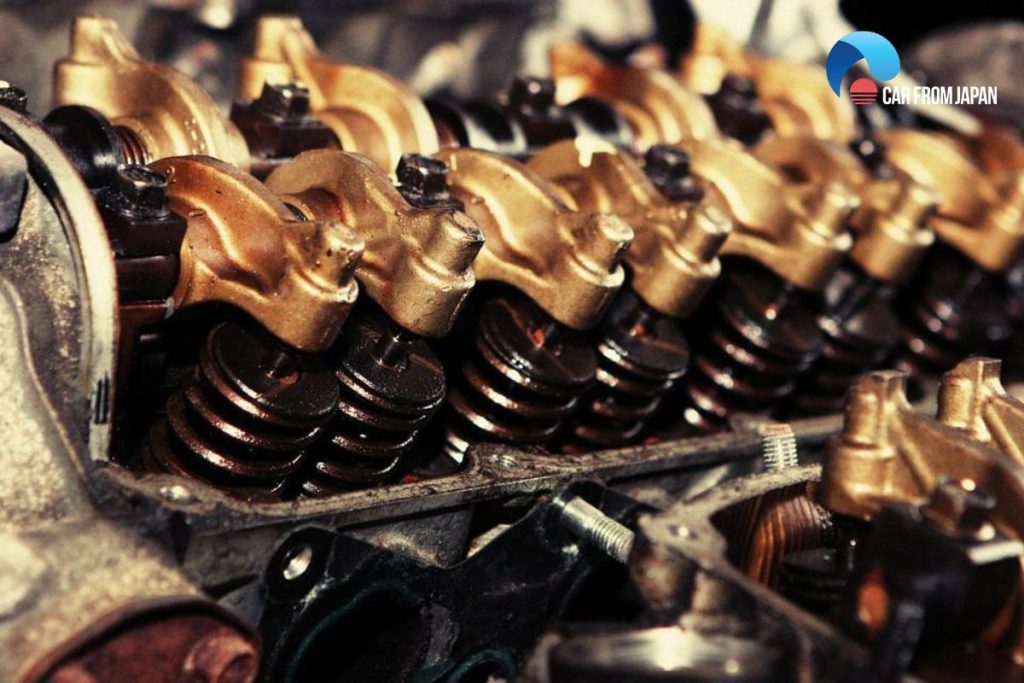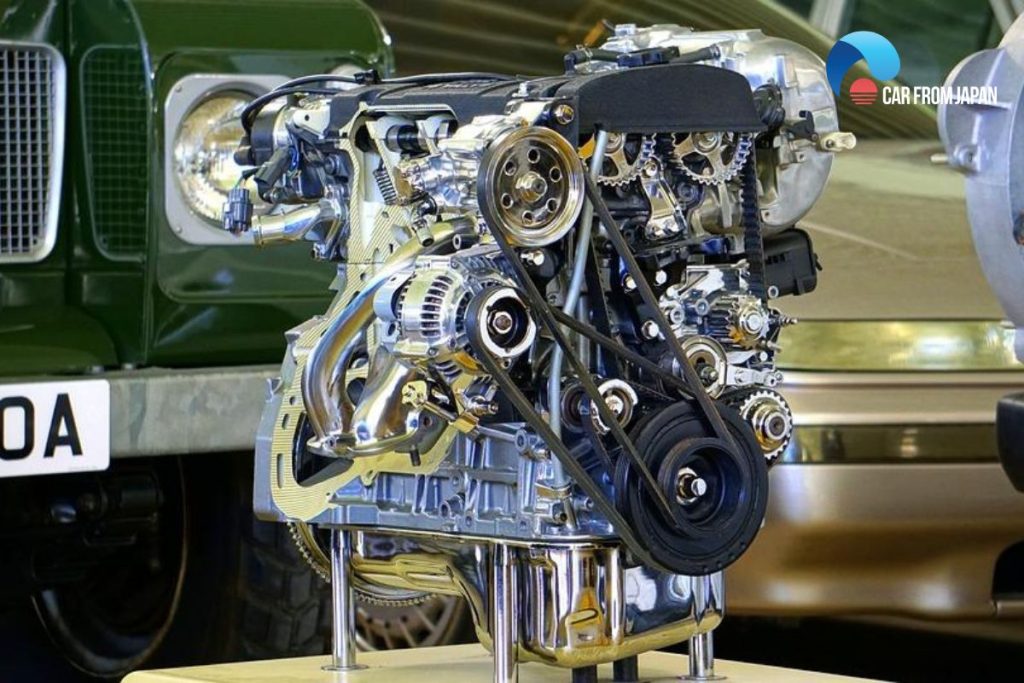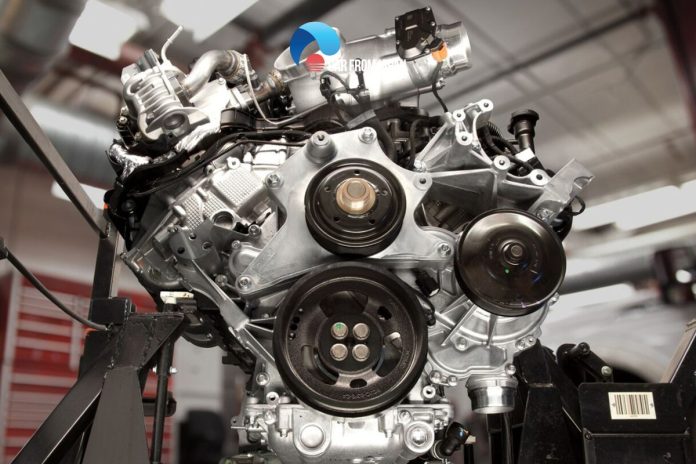Diesel cars have a never-ending relationship with clattering noise. The diesel engine manufacturers have taken all the necessary steps to stop the irritating noises, but the result is still the same.
Noise coming from diesel engines has nothing to do with the weather conditions and temperature.
You might wonder why are diesel engines so loud. Numerous reasons are responsible for the diesel engine making so much noise! Let’s find out now!
Contents
- Basic Information About Gasoline & Diesel Engines
- The Major Reasons Why Are Diesel Engines So Loud
- FAQs on The Noise of Diesel Engines
- Is the loud diesel sound only from the engine itself, or also from the fuel system?
- Do larger diesel engines (like in trucks or ships) sound different from car diesels?
- Can turbochargers actually make diesel engines quieter?
- Why do cold diesel engines sound louder than warm ones?
- Is diesel noise only mechanical, or does vibration play a role?
- Why do modern luxury diesels sometimes sound almost like gasoline engines?
- Final Words
Basic Information About Gasoline & Diesel Engines
Gasoline engines
A vehicle powered by a gasoline engine compresses the gasoline and air mixture at the appropriate pressure. At the end of the compression stroke, the spark plug ignites the compressed mixture.
The piston pushes from the top dead center to the bottom dead center due to the heat generated from this process. As a result, the crankshaft rotates and transmits motion to the transmission and then to the wheels.
Gasoline engines cannot lack spark plugs, this is also a sign of the gasoline engine fuel system.
Diesel engines
Unlike gasoline engines, oil/diesel engines do not need spark plugs to create a spark to ignite the intake air mixture.
At the end of the compression period and the beginning of the expansion combustion period, diesel oil will be injected into the combustion chamber of the diesel engine.
Under the influence of high temperature and pressure of compressed air, spontaneous combustion will take place.
Besides, some oil/diesel engines will have an additional heating spark plug. In winter, compressed air does not create enough temperature and pressure so when injecting diesel, spontaneous combustion can occur.
The reason is that the combustion chamber in the engine is too cold. At this time, the heating spark plug has the effect of heating the combustion chamber before starting the engine.
The Major Reasons Why Are Diesel Engines So Loud
The clattering noise from the diesel engines derives from combustion and mechanism going under the hood. The main reason behind the clattering noise is the build-up of pressure inside the engine.
A diesel engine works on a pressure mechanism that causes so much noise when it begins working. The vibration from the engine structure also causes knocking in the diesel engines.
Let us talk about some finicky factors that make diesel engines noisy.
Vibrations inside the engine-inner surface
A diesel engine comprises numerous small parts merged to work properly. These small parts cause vibration after turning ON the ignition. Small valves, oil pipes, and metal caps produce a lot of noise.

Read More: Car making noise when reversing? Know the Reasons
Combustion and pressure
Combustion inside the engine produces a lot of pressure to move the car. The combustion force of a diesel engine is the chief strength that accelerates the car to its highest speed. The noise of a combustion force can be more than 5000 Hz.
This amount of force and pressure through a machine always result in irritating noise. It is the reason why manufacturers put multiple layers of cover over the engine structure to reduce the noise as much as possible.
Have you had the answer for diesel engines making so much noise? If not, find out more about why are diesel engines so loud with more reasons below.
Vibrations of surface & accessories – outer surface
The force inside the diesel engine vibrates the outer surface and accessories of the car as well. This much pressure inside the car engine makes the entire outer engine surface and its parts to vibrate.
The automobile structure starts to shake when the engine is ON. The cause of this is that every part of a diesel engine gets equally excited, as another explanation for your “Why are diesel engines noisy?”.
Size of engine parts
The size of the diesel engine plays a vital role in making the noise. It is because the small engine parts start to lose much often instead of the bigger ones. Noise issues are often present in smaller diesel engines.
Irregular maintenance and services can result in poor performance and noise from the diesel engines. Taking maintenance tips from the professionals would be highly appreciated.

Using turbocharger
Most diesel engines are equipped with at least one turbocharger. A turbocharger is essentially an exhaust-powered compressor that forces more air into the engine. This way, the engine will get more air without increasing the rpm.
With the right amount of additional fuel, a diesel engine can produce the same maximum power as a gasoline engine while providing superior torque and fuel economy.
When the engine operates at high speed, exhaust gases are released faster and cause the turbine to rotate faster. Sometimes the rotation speed can reach more than 100,000 rpm.
FAQs on The Noise of Diesel Engines
Is the loud diesel sound only from the engine itself, or also from the fuel system?
Both. The sharp clatter partly comes from the abrupt fuel injection process, but the high-pressure fuel pumps and injectors also create distinct ticking sounds.
Do larger diesel engines (like in trucks or ships) sound different from car diesels?
Yes. Large diesels often run at lower RPMs with longer strokes, producing deeper rumbles instead of high-pitched clatter, but they’re still louder than gasoline engines
Can turbochargers actually make diesel engines quieter?
Surprisingly, yes. A turbo acts like a muffler for exhaust pulses, absorbing some noise before it exits the tailpipe.
Why do cold diesel engines sound louder than warm ones?
Cold fuel doesn’t atomize well, leading to incomplete and uneven combustion.
Once warmed up, fuel burns more smoothly, reducing harsh knocking sounds!
Is diesel noise only mechanical, or does vibration play a role?
Vibration is huge. Stiff compression ratios transmit strong pulses through the block, mounts, and even the cabin, making the engine “feel” and “sound” louder.
Why do modern luxury diesels sometimes sound almost like gasoline engines?
Manufacturers use acoustic engine covers, double-walled exhausts, pilot injection cycles, and electronic sound cancellation to disguise traditional diesel noise.
Final Words
All in all, these were some reasons for excessive noise from the diesel engines. At this point, you may have the answer for the question why are diesel engines so loud.
For more insightful Car maintenance tips, follow Car From Japan today!




Doesn’t really answer the original question